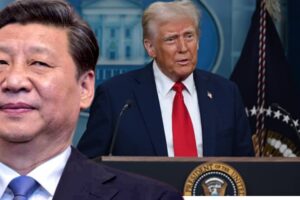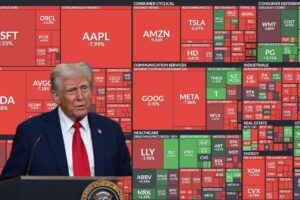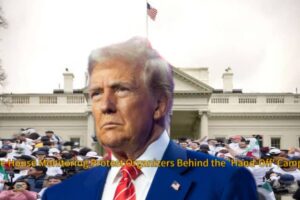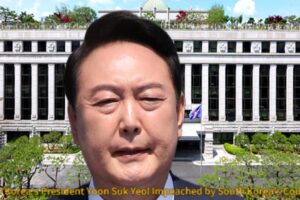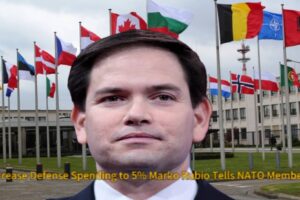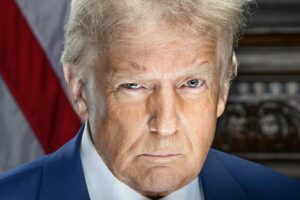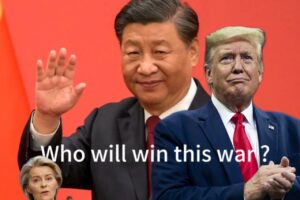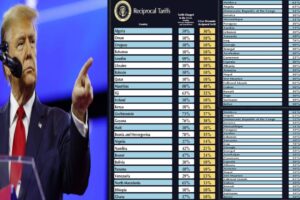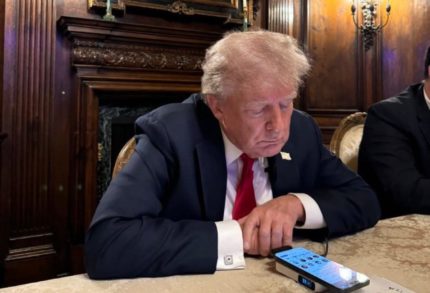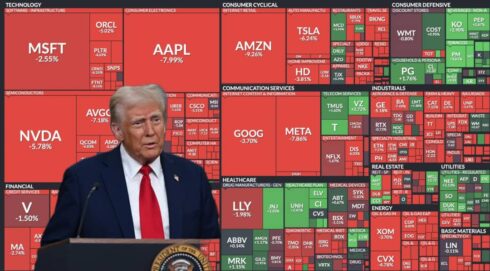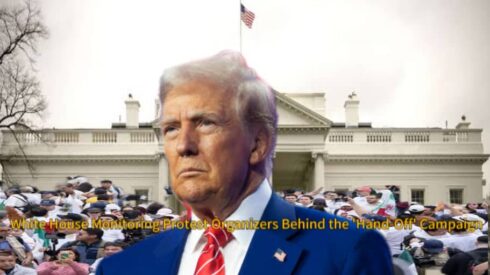Republican presidential candidate Donald Trump has strongly criticized marijuana laws that allow public consumption, particularly targeting Democrat-run cities like New York. On his social media platform, Trump Social, the former president expressed his discontent, labeling these laws as “DISGUSTING” and detrimental to public safety. He vowed that if re-elected, he would work to make “America safe again” by instituting stricter laws that prohibit the public use of cannabis and marijuana.
In New York City, adults over 21 are permitted to smoke or vape cannabis in most public spaces where tobacco smoking is allowed. Trump’s comments directly address this policy, highlighting his concern for public safety and the quality of life in urban areas. His stance appeals to his conservative base, many of whom share his views on law and order, particularly in cities where crime rates have been a significant issue. Trump’s statements signal his intent to roll back what he sees as overly permissive drug laws in major cities if he returns to the White House.
Support for Responsible Legalization in Florida
While Trump is critical of public marijuana use in cities like New York, his position on cannabis legalization in Florida is more nuanced. In his social media post, Trump stated that he supports the legalization of marijuana under Florida’s Amendment 3, which would allow adults to possess personal amounts of marijuana. However, he emphasized the need for the state legislature to enact laws that restrict public consumption, ensuring that the state does not follow the path of cities with more lenient public use policies.
Trump’s stance puts him at odds with many of Florida’s Republican leaders, including Governor Ron DeSantis, who have expressed opposition to Amendment 3. By advocating for responsible legalization, Trump positions himself as a pragmatic leader who acknowledges the will of the voters while maintaining a focus on public safety. His comments also reflect a broader concern about the dangers of fentanyl-laced marijuana, which he mentioned as a growing threat that must be addressed to protect lives.
A Tough Stance on Crime and Public Safety
Trump’s recent remarks highlight his commitment to restoring what he describes as “LAW & ORDER” in America. He criticized the leniency in current drug policies, particularly in states and cities governed by Democrats, and reiterated his promise to be tough on crime if re-elected. Trump’s focus on public safety extends beyond marijuana laws, as he called for smarter approaches to combating violent crime and other criminal activities.
In an exclusive interview with the press , Trump hinted at upcoming policy announcements, particularly concerning his stance on controversial issues like abortion. He suggested that six-week abortion bans, such as those supported by some Republicans, may not provide enough time, indicating potential differences with other conservative leaders. Trump’s comments on both marijuana legalization and other policies signal a shift towards a more moderate approach, aimed at balancing public safety with personal freedoms, while also setting him apart from his primary competitors as he seeks to regain the presidency in 2024.
Trump’s Ambiguous Stance on Nationwide Abortion Ban
In an exclusive interview with press , former President Donald Trump hinted at an upcoming announcement regarding his stance on a nationwide abortion ban. He expressed reservations about a six-week abortion ban, stating that he believes six weeks is not sufficient time. However, when pressed on whether he would use the presidential veto against a federal abortion ban if it were presented to him as president, Trump avoided making a firm commitment. This position seems to contrast with his running mate’s stance, who has indicated support for such a ban.
Trump’s tenure in office was marked by his strong pro-life advocacy, where he frequently took credit for the Supreme Court’s decision to overturn Roe v. Wade, a ruling that had provided federal protections for abortion rights for nearly 50 years. By appointing conservative justices to the Supreme Court, Trump played a pivotal role in reshaping the judicial landscape, leading to the controversial ruling. Despite this, his current approach appears to be one of balancing between pro-life and pro-choice factions as he navigates the complexities of the abortion debate in the upcoming election.
A Strategic Shift: States’ Rights vs. Federal Intervention
Trump’s recent comments suggest a strategic shift in his approach to the highly divisive issue of abortion. Instead of endorsing a nationwide federal ban, Trump emphasized that the decision should be left to individual states. This stance allows him to appeal to a broader electorate by respecting states’ rights while avoiding alienating voters who may be opposed to stringent federal restrictions.
During the interview, Trump reiterated his belief that the six-week abortion ban, such as the one currently in place in Florida, might not be sufficient. He expressed a desire for more extended protections, though he stopped short of specifying what timeframe he would consider appropriate. His reluctance to take a definitive stand on the issue at a federal level highlights his attempt to navigate the political minefield of abortion, aiming to satisfy both his pro-life base and voters who support a woman’s right to choose.
Florida’s Referendum and Trump’s Delicate Balancing Act
Florida’s upcoming referendum on the six-week abortion ban presents a significant test for Trump, who has expressed reservations about such an early ban in the past. Despite his criticisms, Donald has so far avoided directly addressing how he will vote in the referendum. This hesitance reflects his broader strategy of trying to keep both sides of the abortion debate on his side without making a firm commitment that could alienate key voter groups.
Trump’s remarks during the interview underscore his cautious approach to the issue. While he acknowledges that the six-week ban may not be enough, he has yet to endorse a specific alternative, leaving his position somewhat ambiguous. This ambiguity allows Donald to maintain flexibility in his campaign messaging, but it also risks leaving voters unclear about where he truly stands on one of the most critical issues in the upcoming election.

